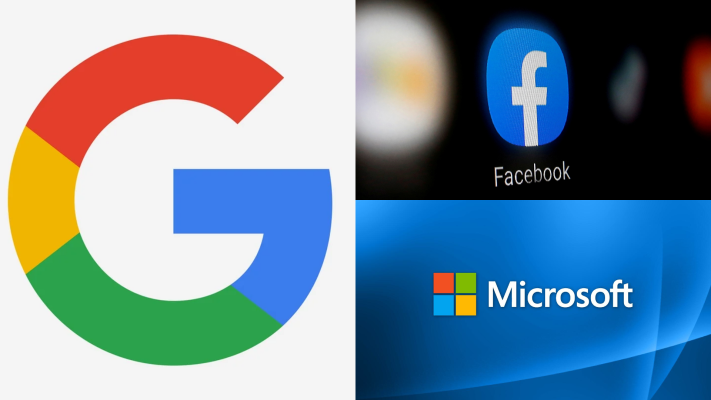
Yahoo was a leading company in the late 1990s and the early 2000s, possibly one of the best web services available. However, if you mention Yahoo now, you’d have to ironically Google it. Over a decade ago, it was holding its own against Google and Microsoft. With its peak valuation at $125 billion in 2000, it must have been hard to predict such a tech titan facing a downfall this unfortunate.
What exactly happened to Yahoo? Yahoo now serves as a wake-up call to other companies to step up their innovation and create better strategies. Our article has broken down their story and mistakes.

The founders of Yahoo! – David Filo and Jerry Yang
What is Yahoo?
In January 1994, Jerry Yang and David Filo created Yahoo (often stylised as Yahoo!) as a small project. This small project was initially named, “Jerry and David’s Guide to the World Wide Web,” with the vision of a directory-style search engine.
Fun fact: The full form of “Yahoo” is “Yet Another Hierarchically Organized Oracle” or “Yet Another Hierarchical Officious Oracle.”
Their services include– a web portal, Yahoo search engine, personalised page My Yahoo!, Yahoo Mail, Yahoo News, Yahoo Finance, Yahoo Sports, and Yahoo! Native. These were all active and regularly visited in the late 1990s and early 2000s.
These Grave Mistakes Cost Yahoo
Google: In 1998, Yahoo had the chance to buy Google for a mere $1 million and yet refused the offer. In 2002, Google’s offer raised to $5 billion which Yahoo countered for $3 billion, an amount the former rejected. This was one of the biggest mistakes Yahoo ever made as Google’s worth now sits at more than $1 trillion.
Facebook: Yahoo tried to obtain Facebook for $1 billion in 2006. While their current valuation of $562.19 Billion is leagues above, Facebook was rapidly growing in 2006 and is a still remembered platform. Mark Zuckerberg, the CEO of Meta Platforms (originally Facebook), rejected the offer. However, reports have said that Facebook’s board of directors pushed for $1.1 billion which Yahoo then refused for reasons unknown. Settling for that price difference would have acquired them one of the most visited social media platforms.
Microsoft: Now the turns were turned on Yahoo for the opportunity of a lifetime. Microsoft recognised Yahoo and offered to acquire them in 2008 at $46 billion. Despite their generosity, Yahoo rejected the offer, priding themselves to be worth more than the offer price.
Yahoo’s valuation continued to decline over the years, with all of these strategic moves amounting to nothing when they could’ve proved to be beneficial. Ultimately in 2016, their several mistakes led to Yahoo being sold to Verizon at a mere $4.8 billion.

Strategies That Proved Yahoo’s Lack of Vision and Care
Strange Deal with Microsoft: The two companies then made a deal where Yahoo! Search would be powered by Microsoft Bing’s search engine. However, Yahoo’s failure to innovate its search engine, not prioritising quality for a smooth user experience, is a whole other downfall.
Failing to Power the Niche of Tumblr and Turning Down Netflix: After investing in Tumblr at $1.1 billion in 2013, it was made known that Yahoo could have purchased the streaming service, Netflix, at $4 billion. However, due to their lack of creativity, a quality Tumblr needed, Yahoo dragged Tumblr’s valuation down to $260 million in just 3 years. Now, Netflix sits at $261.74 Billion.
Lack of Consistent Leadership: Yahoo began a vicious cycle of switching and hiring external executives. Filo and Yang relinquished leadership to others, which led to confusion in direction. As the saying goes, “Too many cooks spoil the broth” and Yahoo’s leadership style proves it. The constant change and variety left them with no clear-cut vision. A company needs a vision and Yahoo severely lacked one. With too many possible futures and ideas, their leadership ruined any chance of forming a plan.
The Data Breaches of 2013 and 2014: Any web service provider should arrive with the promise of data protection. Consumers should have confidence that their privacy will not be compromised. However, Yahoo betrayed that trust. Despite Yahoo’s popularity in the 2000s, the 2010s were a different story altogether. In 2013, over 3 billion accounts were exposed, revealing their names, passwords, emails and phone numbers. This wasn’t the last as 2014 saw another 500 million accounts violated. This jeopardised their trust and connection to the general public.
How They Could Have Used Alibaba: Yahoo decided to invest $1 billion in 2005 in the Chinese e-commerce website, Alibaba. Alibaba was a much younger company and Yahoo’s investment gave it a rush of growth. However, when their business became expansive, Yahoo failed to make the correct decision. Alibaba’s value in 2014 was $168 billion, an impressive number that should have encouraged Yahoo to make a move. However, Yahoo’s CEO during that period, Marissa Mayer, decided to instead sell a portion of their shares with Alibaba.

Where is Yahoo Now?
Initially sold to and merged with AOL (America Online) by Verizon Communications in 2017, Yahoo has now been acquired for 90% division by Apollo Global Management in September 2021. The former CEO of Tinder, Jimmy Lanzone, now serves as the CEO of Yahoo.
Follow our series, Saturday Screw Ups on Instagram: Saturday Screw Up – Yahoo!
What Can Companies Learn From Yahoo?

Here are the best lessons we can learn from Yahoo’s mistake:
- Embrace Innovation and Seize Opportunities: Yahoo’s decline serves as a stark reminder of the importance of innovation and seizing opportunities when they arise. Yahoo had the chance to acquire Google for a mere $1 million but passed it up. Fast forward to today, now Google is worth over $1 trillion. This highlights the importance of recognizing innovation and acting swiftly to capitalise on it.
- Value Quality Over Quantity: Yahoo’s failed attempt to compete with Google in search engine technology demonstrated the importance of prioritizing quality over quantity. Despite partnering with Microsoft’s Bing search engine, Yahoo’s lack of innovation and failure to prioritize user experience led to its downfall. Companies should focus on providing high-quality services that meet customer needs rather than simply expanding.
- Maintain Consistent Leadership and Vision: Yahoo’s frequent changes in leadership and lack of a clear vision contributed to its downfall. With each new leader came a different direction, leading to confusion and a lack of focus within the company. Companies need to maintain consistent leadership and a clear vision to guide their strategic decisions and ensure long-term success.
- Recognize and Nurture Investments: Yahoo’s failure to fully capitalize on its investment in Alibaba, Tumblr and others is a valuable lesson in recognizing and nurturing investments. While Yahoo’s initial investment in Alibaba provided a significant boost to the e-commerce giant’s growth, it ultimately failed to capitalize on Alibaba’s soaring valuation. Companies should carefully evaluate and nurture their investments to maximize their potential returns and incite future growth.
- Protect Consumer Trust and Data: Yahoo’s data breaches in 2013 and 2014 severely damaged its reputation and eroded consumer trust. Companies must prioritize data security and take proactive measures to protect customer information. Building and maintaining trust with consumers is crucial for long-term success and brand reputation.


